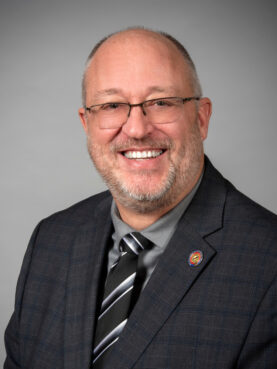
(RNS) — Some describe LifeWise Academy as vacation Bible school for public schoolers.
The free program, which serves nearly 400 schools in Ohio and hundreds more across the United States, provides public school students with Bible-themed games, instruction, and hands-on activities, all conducted off school property during recess, lunch, or while the student would be in a noncore class.
But some school districts in Ohio have begun to pull back from LifeWise, bringing mixed reactions from parents and coming as state legislators work to make the “religious release” available statewide.

(Photo by Taylor Wilcox/Unsplash/Creative Commons)
Students in the Worthington City School District, near Columbus, Ohio, have been attending LifeWise Academy’s sessions since last year. But on Monday (Dec. 9), the school board unanimously voted to end a policy that allows public school students to participate in religious programs during school hours.
“I just can’t understand why this program, which is valuable to many families, can’t meet after school,” board member Jennifer Best, who wore a silver cross necklace at the meeting Monday where outside instruction was voted down. “If we get to the point where there’s two or three or four programs, and then all of a sudden the music world wants kids to take music lessons during school time, and then language lessons during school time, I just see it growing and getting out of hand.”
More than 20 students will be affected by the vote, according to LifeWise, based in Hilliard, Ohio, which had planned to expand to four schools in the district due to demand. Jennifer Jury, LifeWise director of program advocacy, called the decision “really disappointing.”
The school board did not respond to requests for comment.
Worthington is the second Ohio school district to discontinue its religious release policy in recent months, after a similar decision by Westerville City Schools, another central Ohio district, which dropped the policy in October, impacting nearly 300 students who had been enrolled in LifeWise, according to Jury.

Gary Click. (Photo courtesy of Ohio House of Representatives)
Both decisions come amid statewide discussions on religious release, a policy that gives students express leave to be excused during the school day for religious instruction and is currently permitted statewide. Under the policy, religious programs must provide transportation, must not use public funds or public school personnel and must obtain parental consent for student participation. A new bill in the Ohio General Assembly would mandate school districts to allow religious release programs.
The bill would update an existing law saying a school district board “may” permit religious release with new language saying boards “shall” authorize such programs. Initially introduced this spring as Ohio House Bill 445 by sponsor Gary Click, a Republican state representative, and Al Cutrona, a Republican senator, it includes the same mandatory religious release language as a Senate bill this summer by Republican Sen. Michele Reynolds. In an email to RNS, Click described the House bill as creating “a level playing field and equal opportunity for all parents and students throughout Ohio regardless of a student’s zip code.” Both bills have drawn extensive criticism and support, and neither bill has yet made it out of committee.
More recently, the mandatory religious release policy was added to a bill that passed Ohio’s lower chamber last summer that bans teaching on “sexual concepts and gender ideology” below third grade, according to the Ohio Capital Journal.
Bill 8, also introduced by Republican lawmakers, requires the disclosure of “sexuality content” to parents and permits parents to exclude their students from such instruction. It also requires school districts to disclose student requests to “identify as a gender that does not align with the student’s biological sex.” Supporters of the bill hope it passes before General Assembly concludes later this month.
Jury said LifeWise specifically designs programming for during the school day in part so students who can’t afford transportation to before- or after-school programs can still access LifeWise lessons.
“This was specifically something we had seen as a need. Since the public school doesn’t really provide for a religious ed opportunity for most students, this was kind of a gap that LifeWise could step into and help families with,” said Jury. “So unfortunately, for Worthington students and Westerville students during the school day, that’s not an opportunity anymore.”
She said that content about sexuality or gender identity is not part of the curriculum and that LifeWise instructors redirect questions on these topics to the student’s family or church. And LifeWise avoids discussions about denominational differences, she added.
Of the hundreds of witnesses who submitted testimony on the religious release bill or its companion legislation in the Senate, three were mainline Christian pastors; others included the executive director of a Buddhist temple and a sister in the Church of the Flying Spaghetti Monster, a group that spoofs religious influence on politics. All opposed the bills.
Douglas Berger, founder of the Secular Humanists of Western Lake Erie, also criticized the religious programs. “We believe that public schools are for education, and religious education should come from the home. We don’t believe that they should be mixed,” he said.
He also expressed concern that, while LifeWise tries to appeal to Christians across the theological spectrum, it has sponsored a national summit for conservative activist group Moms for Liberty.
In response to the religious release controversy, the Satanic Temple, a religious freedom activist group, said it plans to launch a Hellions Academy for Independent Learning, or HAIL, at Edgewood Elementary School in Marysville, Ohio, where LifeWise has been offered since September 2023. A minister for the group told Ohio news outlet KRON4 that its involvement came at a local parent’s request.
Asked about HAIL, Jury said, “LifeWise is not frightened by the Satanic Temple or any other group that wants to start a (release time religious instruction) program. It is totally the right of any family that wants religious instruction for their child, any type of religious instruction, that is a freedom that we enjoy here in the United States. And it’s important for that freedom to continue for any religion that wants that.”






